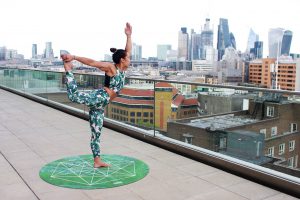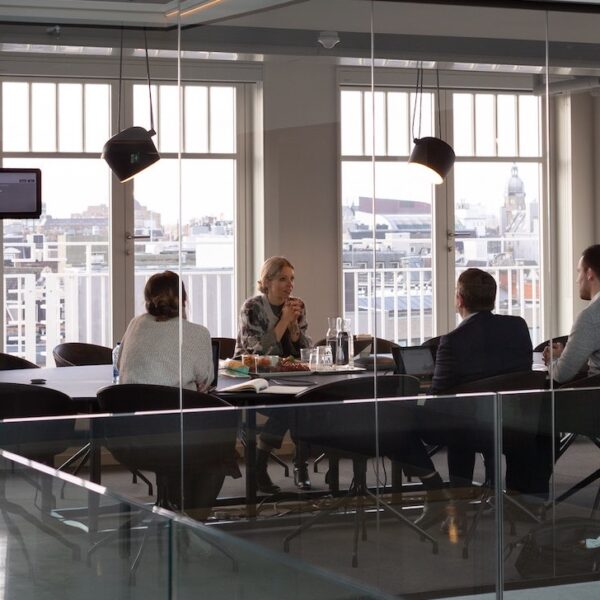Thanks to Covid 19, the world is anything but normal just now, and we are all going to have to embrace uncertainty for the next few months. This is grim – but it just might also be the biggest opportunity in a generation.
Why?
Because the way we have been conducting our working lives was, frankly, not very satisfactory in many ways. About 20 million working days are lost to stress in any year, and over half of all employees dislike their jobs to the degree that they are looking for a new one.
Productivity is far lower than it could be, which may not seem quite so important when the government is subsidising companies to send people on leave, but will be oh-so-vital when the economic fightback begins.
Work can be a route to human growth and fulfilment
Unfortunately work is seen by many as just a way to pay the bills. And that is hardly likely to be motivating or productive, or to stimulate good quality. So, as the world makes a rapid and uncertain transition to working from home, what should we think about doing differently if we want to take advantage of this opportunity, assuming it is one?
The internet is awash with practical advice on networking, security, health and safety, GDPR and more recently, how to home-school and which online exercise routines to use, so we really don’t need to repeat any of that here, although you really must try the P.E run by Joe Wicks each day. It’s great fun for the kids, and grown-ups too!
However, there is something else that does need thinking about – just as important in the grand scheme of things but not yet at the forefront of people’s minds in the first stages of this emergency.
We humans have certain needs – an idea first articulated well before Maslow and developed by several different groups since.
These needs are not optional; we do well if these needs are met, and we suffer if they aren’t. You can test the truth in that idea by just asking yourself what does it feel like to be isolated, or to feel insecure – and, conversely, what does it feel like to be in company you like, and to know you are in no danger.
The feelings we get when our basic needs are compromised are just the tip of the iceberg – they signal a raft of changes in our nervous and hormonal systems that disrupt everything from the immune system to gut function to the aches and pains around our body and, vitally from our employers’ points of view, our ability to think and so to work well.
These human needs are tricky to categorise exactly – they overlap and are fuzzy at the edges, as Maslow noted, but here’s one way to define them:
We need a sense of security, so we can live without fear. A feeling of autonomy and control over what happens around us; a sense of being accepted and valued; opportunities to get away from others periodically; ways to interact and pay attention to each other; a sense of being part of a wider community; emotional connections to friends and family; a feeling that we have achieved things; and a feeling that there is some meaning or purpose to what we do.
It’s easy to see how work can normally support all these needs – or not – and to see how suddenly switching to remote working could disturb the whole way we get our needs met in the working week, so it’s important to think about how to make that change work.
Much is being said about keeping to a routine, and there’s certainly no harm in that, as long as the routine meets your basic needs.
Get up as normal and get dressed before going to work; keep active – find ways of doing at least as much movement as you normally do; eat at mealtimes; finish work at a normal time and put away the computer and the phone; put a boundary between work and home life and try to forget about work for the rest of the day.
So far so good, and we know our client companies are working hard to help employees through this change, but as Jonathan Richards of Breathe HR said in our joint webinar last week, people are still unsure about some things.
In the virtual office, how do you know if it is a good time to call someone – how can they signal whether it would be a good time? How do you re-create the water-cooler or coffee area where serendipitous exchanges lead to new ideas? Perhaps most importantly, how do you know if someone is upset?
In the immediate future we will all be finding partial solutions to these and many related questions, and we are delighted to be helping clients with additional surveys aimed at finding out how well the new arrangements are suiting their employees. If you’d like to reach out and connect with your employees to find out how they feel during these uncertain times, please do contact us to find out more.
However, in the longer term there is a bigger question: will we take the opportunity to build new ways of working that respect these human needs better? I hope so, because this is the only chance we will see in our lifetime on this scale (touch wood).
We all have an opportunity to reinvent
So please, don’t do your best to build a virtual version of the life you had before – that would be to risk being back in the same position as before but with extra opportunities for error and isolation and misunderstanding. Think about the future …
- There will be extra time available if you’re not commuting and can’t go out much, so again make the best possible use of this in ways that will help meet your innate needs
- Treat the situation like an opportunity to do all kinds of things that will make you, and others, feel better about life
- Learn something new, like a language, an instrument, a poem or a new skill.
- Dig out those books that you have always promised yourself you would read when you have time, because now you have
- Get out the address book and give people a call, especially friends and relatives who might be feeling more isolated than you
- Think hard about what works and what doesn’t in this strange new life; what is better and what is worse. This will underscore the point that there are some things human beings just need, and that we feel better in ourselves when we have them.
Above all, plan what you will do when the world goes back to ‘normal’ – where will you go, who will you see, and how will you prevent yourself going back to the old way of life – because that would be to miss the biggest opportunity most of us will have in our lifetimes.
In the meantime please keep a safe distance from other people – and stay in touch by other means.





